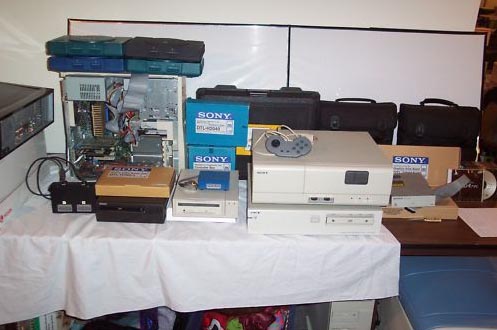Devkits for All
Dedicated devkit devices are overkill, and their cost puts off many developers in a world where competing platform holders strive to attract content creators
I previously blogged about how even if you don’t play the games, owning a retail console or device for your target platform can have many benefits.
Now, consider a devkit and retail kit come as a single package, at a price that ordinary consumers can afford. That represent really good value for money for developers looking to see which console they want to target. Add in free software development tools such as Unity3d and it’s even better!

Devkits are usually more than just a retail box, and can include all sorts of extra diagnostic equipment and tools. For most small developers however, indies in particular, they are unlikely to really push the boundaries of the platform in a way that requires them to get close to the metal (code at a low level and use very specific hardware properties to gain maximum performance). Especially so for those who have delegated that task of having the most efficient, high performance engine, to the middleware providers like the teams behind CryEngine or Unity3d.
Having worked in mobile and on the OUYA, I really believe having retail units double up as devkits is the way forward. It is slightly intimidating approaching a big company like Microsoft or Sony to ask for a devkit, and devs aren’t known for being sociable and building business relationships
It also means there is less overload at the platform holder’s end, on those who would otherwise be in charge of handling dev relations. It means they don’t have to waste time answering the same questions over and over again. About process / procedure or getting started, or when is their devkit going to get shipped?
Furthermore, you will get people who start off only tinkering around with dev tools, only to later get really into development. Sometimes amazing games can result where before, the would-be dev was put off by the effort required just to see what this game making thing is all about.
Even having a (disabled?) set of developer options on the system menu, as is the case with the recently launched Xbox One, will make people curious and give them a feeling that development is for everyone, not just the elite with connections.
And there is also a marketing benefit. Developers can bring their incomplete or beta builds to trade shows or conventions to demo. Equally, developers can produce their own marketing material without having to worry about breaking NDA’s or revealing secrets. In an age where many indie developers make sharing the game development process a key component of their marketing, having to dance around what can and can’t be revealed adds time overhead and risk for both developers and platform holders
Mobile platforms (and microconsoles to a lesser extent) have a distinct advantage in that developers can pull their game out of their pocket at any time and do an impromptu pitch or get feedback, no matter where they are. While it’s difficult to lug an Xbox or Playstation around with you, at least being send your build to private beta testers over the internet and have them install the game on their own machine can be a massive boon.
The flip side is that the online stores for the platforms in question get overloaded with everyone’s “my first game”. Which leads onto the whole thing about discoverability, but that’s an entirely different debate altogether. It’d be a false economy to solve that by making development less easy.